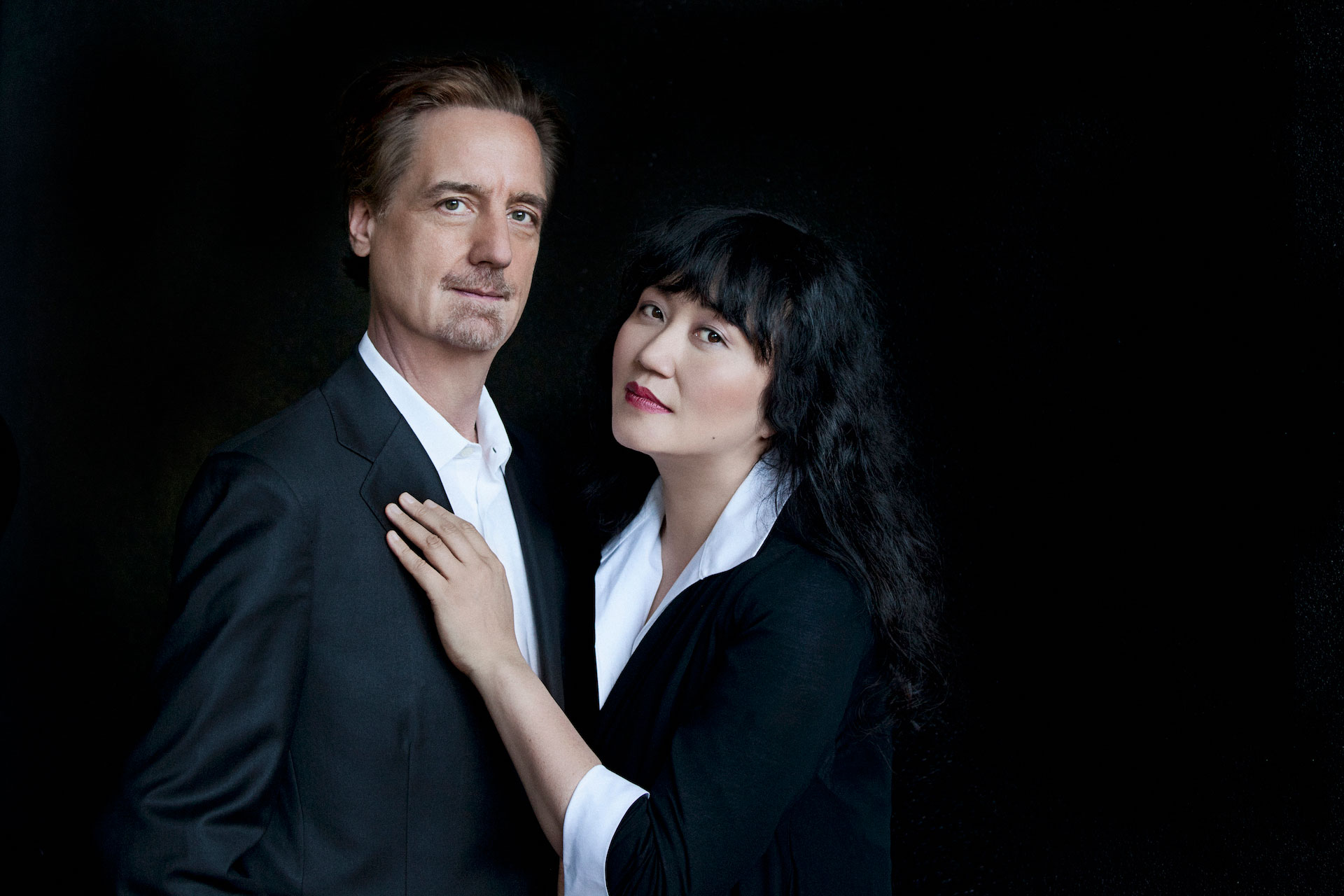Music@Menlo 2018: Making Magic Happen For Young Performers
By Georgia Rowe
July 10, 2018
Each year at Music@Menlo, audiences come to concerts knowing they’ll hear top chamber musicians from around the world.
What they might not know is that the annual South Bay chamber music festival is also an elite training program for young artists.
Founded by its co-artistic directors, pianist Wu Han and cellist David Finckel — one of the classical music world’s most glamorous married couples — Music@Menlo’s Chamber Music Institute is an integral component in this unique West Coast event.
This season – Menlo’s 16th – is titled “Creative Capitals.” Running July 13-Aug. 4, it’s designed to take audiences on a musical-historical journey through seven of the world’s great cities, from London to Vienna, showcasing composers who shaped the history of Western classical music. The calendar features seven mainstage concerts, with intimate Carte Blanche performances, Café Conversations, multimedia lectures and other ancillary events rounding out the schedule.
It’s a three-week intensive for the festival’s young artists, who participate at every level. Comprising the International Program for musicians age 18 to 29 and a Young Performers Program for pre-and early conservatory level musicians 9 to 18, the Institute has become one of the most highly regarded summer programs for string players and pianists.
“That’s how the festival was conceived,” Wu Han explained last week in the midst of preparations for this year’s events. “From the beginning, David and I looked at each other and said ‘this is an education program. We’ve got to have the younger generation around.’ I always had this dream that the older generation would spend time with the young musicians.”
Having proximity to established artists – past rosters have included violinist Jorja Fleezanis, music scholar Michael Steinberg and pianist Gilbert Kalish, who returns this season – is essential to the young artists’ development, she adds, not just in coaching and master classes, but in performances as well.
As a young artist, Wu spent several summers at the Marlboro Music Festival in Vermont. She describes it as a life-changing experience – one she knew would work at Menlo. “But I didn’t expect the impact would be so huge. Living and breathing the same air, working and going to the same concerts, discussions and meals and master classes – I did not expect the growth that has happened with these young musicians. Especially in the world of chamber music, it’s the most impactful kind of teaching.”
Since the first season, she notes, more than 300 young musicians have participated in the Menlo Institute; many have gone on to professional careers (a map on the festival’s website shows where they are today: https://musicatmenlo.org/alumniFestivalMap/)
One of the Institute’s success stories is violinist Alexi Kenney, who grew up in Palo Alto and attended the inaugural institute in 2003. He was 9 years old.
“That year, there were just three of us below age 13,” Kenney recalled in a phone call from his home in Brooklyn. “But the program just kept growing over time.” He returned in 2004, 2006, 2007, 2008 and 2010 and joined the International Program in 2013.
For Kenney, those experiences were transformative.
“I realized it wasn’t just about playing your instrument alone,” he said. “Once I started at Menlo, something clicked for me. It was like ‘Wow, I could do this for the rest of my life.’”
Since then, Kenney, who was awarded the 2016 Avery Fisher Career Grant, has become a sought-after soloist with orchestras and chamber groups across the country; this year alone, he’s appeared with the California, Columbus and Detroit Symphonies. In 2019, he’ll join the Chamber Music Society of Lincoln Center, where Finckel are Wu Han are co-artistic directors.
Kenney, who makes his Menlo mainstage debut this year — he’ll appear on the “Leipzig” program (July 25-26) in works by Bach, Telemann and Schumann — believes that joining young artists with seasoned professionals yields a powerful synergy. “it’s a very special mix of activities and ages and generations,” he says. “It’s very cool. The musicians are some of the best in the world. So there’s a special energy, an aura that surrounds Menlo that I think is unique.”
Wu agrees. The pianist, who will appear on several programs, including a Carte Blanche concert with violinist Paul Huang and a season-ending performance of Schubert’s Allegro in A minor for Piano, Four Hands with Kalish, recalls a performance a few years back that so excited the audience, “the kids got up and screamed and clapped and whistled.”
An older patron approached her to say the kids needed to learn how to behave.
How did she respond?
“I said not to worry,” said Wu. “To see this generation get so excited about the music — it really is a good thing.”
Contact Georgia Rowe at growe@pacbell.net.

